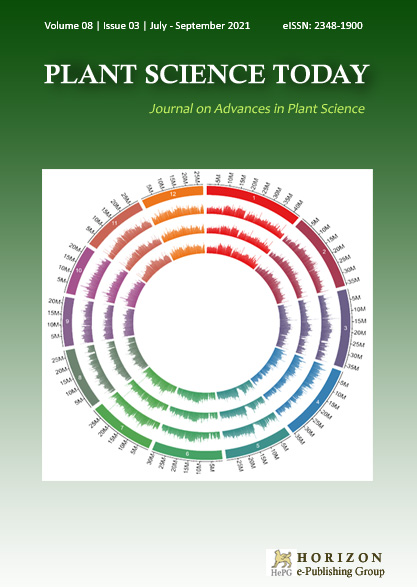Genetic variation among biofortified and late blight tolerant potato (Solanum tuberosum L.) (mini tuber) production in Bangladesh
Abstract
Biofortified potato could contribute a major role in food security for millions of people. It could help toalleviate worldwide micronutrient malnutrition. An experiment was carried out during 2019-2020growing season with 49 accessions following randomized complete block design with three replicationsin order to evaluate and classify agro-morphological traits in Breeder seed production centre (BSPC),Debiganj, Panchagarh. Eight quantitative characters i.e. germination percent, foliage coverage, stemnumber per hill, plant height, plant vigor, tuber number per plant, tuber weight per plant, yield perplant were measured. Principal components (PC) analysis showed three components explained 72.16% of the total variation among traits. The first PC assigned 35.22 % and the second PC assigned 58.47 %of total variation between traits. The first PC was more related to yield per plant and weight of tuber.Forty-nine germplasm was placed on three cluster based on cluster analysis using a hierarchicalclassification (HCA). All accessions were discriminated and high morphological variation was observed.Thus, the outcomes of principal component analysis used in the study have revealed the high level ofgenetic variation and the traits contributing to the variation were identified. CIP403, CIP404, CIP405,CIP413 and CIP445 accessions identified as superior based on cluster relationship and PCA bi-plot.

